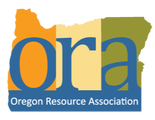Part I will provide a basic overview of the most common and intense personality disorders.
Part II will take place after participants have had the opportunity to apply the knowledge they gained, and return with questions for customized training.
Personality disorders are different from other psychiatric disorders. People who experience personality disorders may sometimes show subtle symptoms, and others show intense behaviors that lead to rushed hospitalization. Often, we get very little training on working with people who may have avoidant personality, borderline personality, conduct disorders, and many others. Without basic knowledge, we cannot spot symptoms consistent with a personality disorder, so we don't know how to help people who are suffering. Unfortunately, personality disorders also cause chaos and stress for families, caregivers, police and the community in general. This is especially true for those individuals who experience both a personality disorder and developmental disability as well.
This training will be offered in two parts to allow for both deeper understanding of the topic, as well as offering and practicing working with those who experience personality disorders. The first four hour class will provide an overview of the most common and intense personality disorders. The second four hour class will be one month after the first. This will allow attendees to go back to work, apply the knowledge they have gained, and return with questions so that the second session can be as practical and useful as possible.
Dr. Clay is a Licensed Clinical Psychologist with Degrees from the University of Oregon and Pacific University. As part of his Residency, he was a Fellow at the Center on Human Development and Disability at the University of Washington Medical Center as well as Oregon Rehabilitation Association and Oregon State Hospital. Dr. Clay has worked as a direct care staff, case manager, protective services investigator, Clinical Psychologist and Clinical Neuropsychologist.
During Graduate School, he focused on Clinical and Research undertakings with the Dual Diagnosed (those with Intellectual Disabilities and Comorbid Mental Illness), as well as adult Neuropsychology. He published 3 times in peer reviewed journals during his graduate studies and won a competitive scholarship focusing on work with the Dual Diagnosed.
Dr. Clay was on the board of Galt Foundation for more than 10 years, an organization dedicated to providing vocational services to people with disabilities in Oregon, Oklahoma.
Over the previous 10 years, Dr. Clay has provided therapy and assessment to people with Depression, Autism, Anxiety Disorders, Intellectual Disabilities, Life Transition Issues and many others. Dr. Clay’s therapeutic approach is based in CBT, but includes humanism and humor. Dynamic humor can lead to authentic rapport which may allow for more formal interventions to be applied.
He has spoken at more than 20 conferences, Keynoted at the Oregon Co-Occurring conference 5 years in a row and recently organized the annual conference for 2013. In addition, he has provided more than 75 speaking engagements to partners throughout the region.
For more information on this training on how you can participate, contact Kim Mintrone (kmintrone@oregonresource.org) at 503-585-3337.
Part II will take place after participants have had the opportunity to apply the knowledge they gained, and return with questions for customized training.
Personality disorders are different from other psychiatric disorders. People who experience personality disorders may sometimes show subtle symptoms, and others show intense behaviors that lead to rushed hospitalization. Often, we get very little training on working with people who may have avoidant personality, borderline personality, conduct disorders, and many others. Without basic knowledge, we cannot spot symptoms consistent with a personality disorder, so we don't know how to help people who are suffering. Unfortunately, personality disorders also cause chaos and stress for families, caregivers, police and the community in general. This is especially true for those individuals who experience both a personality disorder and developmental disability as well.
This training will be offered in two parts to allow for both deeper understanding of the topic, as well as offering and practicing working with those who experience personality disorders. The first four hour class will provide an overview of the most common and intense personality disorders. The second four hour class will be one month after the first. This will allow attendees to go back to work, apply the knowledge they have gained, and return with questions so that the second session can be as practical and useful as possible.
Dr. Clay is a Licensed Clinical Psychologist with Degrees from the University of Oregon and Pacific University. As part of his Residency, he was a Fellow at the Center on Human Development and Disability at the University of Washington Medical Center as well as Oregon Rehabilitation Association and Oregon State Hospital. Dr. Clay has worked as a direct care staff, case manager, protective services investigator, Clinical Psychologist and Clinical Neuropsychologist.
During Graduate School, he focused on Clinical and Research undertakings with the Dual Diagnosed (those with Intellectual Disabilities and Comorbid Mental Illness), as well as adult Neuropsychology. He published 3 times in peer reviewed journals during his graduate studies and won a competitive scholarship focusing on work with the Dual Diagnosed.
Dr. Clay was on the board of Galt Foundation for more than 10 years, an organization dedicated to providing vocational services to people with disabilities in Oregon, Oklahoma.
Over the previous 10 years, Dr. Clay has provided therapy and assessment to people with Depression, Autism, Anxiety Disorders, Intellectual Disabilities, Life Transition Issues and many others. Dr. Clay’s therapeutic approach is based in CBT, but includes humanism and humor. Dynamic humor can lead to authentic rapport which may allow for more formal interventions to be applied.
He has spoken at more than 20 conferences, Keynoted at the Oregon Co-Occurring conference 5 years in a row and recently organized the annual conference for 2013. In addition, he has provided more than 75 speaking engagements to partners throughout the region.
For more information on this training on how you can participate, contact Kim Mintrone (kmintrone@oregonresource.org) at 503-585-3337.
